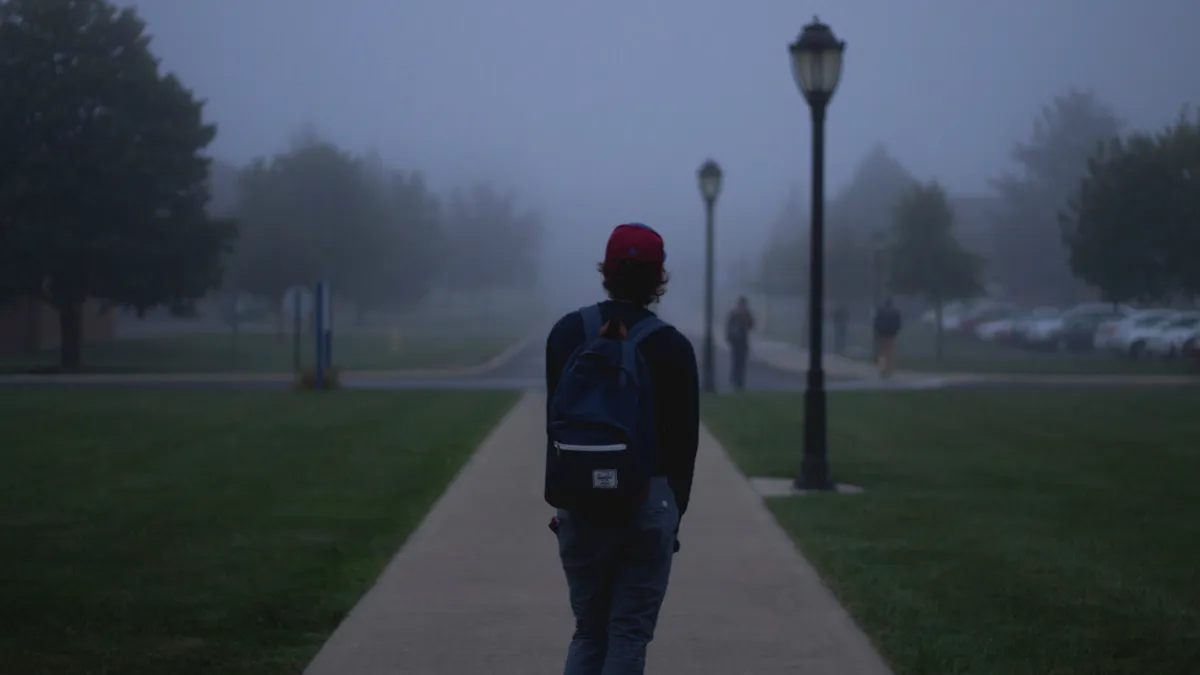Dive Brief:
- The Supreme Court upheld Tuesday in a 5-4 decision President Donald Trump's travel ban, which prohibits entry to the U.S. for individuals from eight countries, with the greatest restrictions on residents of six mostly Muslim nations. The ban follows reports showing significant declines in F-1 student and short-term visas, which often are used by academics traveling to conferences oversees, according to a report from Inside Higher Ed.
- Ted Mitchell, president of the American Council on Education, elaborated on an amicus brief submitted by ACE and 32 other industry associations against the ban last year in a statement Tuesday. He said the decision will contribute "to the perception that this country is no longer a welcoming place for study and research by the world’s best and brightest international scholars and students." Miriam Feldblum, executive director of The Presidents’ Alliance on Higher Education and Immigration, told Education Dive this perception has long-term impacts, because "it tangibly adds the policies that already makes it difficult for students from abroad, given existing visa restrictions that are tightening, to enroll in U.S. institutions."
- Meanwhile, Wil Del Pilar, vice president of higher education policy and practice at The Education Trust, said the ban also has financial implications as "international students have been important to U.S. higher ed from an intellectual capacity perspective, and there are a large number of graduate students that are coming from other countries to live here [and are contributing] revenue."
Dive Insight:
Since the Trump travel ban was announced, U.S. institution leaders have spoken out against it because the policy creates greater barriers to enroll international students and recruit global academic talent, which makes their schools more competitive in a difficult marketplace. Del Pilar explained to Education Dive that the travel ban follows other exclusionary practices, such as moves to make it difficult for students who are covered by the Deferred Action for Childhood Arrival policy. He said the Supreme Court ruling only adds to the perceptive that higher education is not accessible to everyone — a reality that has economic implications not just for the sector, but the nation's economy overall.
"When we think about what's happening in terms of rhetoric and policy, it places a chilling effect on the sentiment of international students to study here. It's broadly problematic, because it's an additional policy of exclusion," said Del Pilar. "This limits human capital that has the ability to enter this country, which means there are limits in the intellectual property sector. In the past we've been able to leverage this human capital from other countries to help our nation."
And though international students make up a relatively small percentage of the undergraduate population, Feldblum said that such practices still go far in additionally impacting first generation immigrant students and second generation students. For example, she says that second generation students may feel the stress of their family members not being able to visit them. This means that institutions have to figure out better practices for making sure impacted students can stay in college and excel, despite potential anxiety that could come from the ban.
"When you put together these groups, they make up approximately 30% of the undergraduate population nationally. A growing proportion of the college population are seeing their lives and their prospects being adversely impacted by immigration policy," said Feldblum. "For institutional viability, the ability to recruit, attract, retain and graduate the best of global talent and local talent is really important."
"These students are dealing with policies that impact the core of their educational mission, when we are trying to facilitate access," she said, adding that now the amount of resources and institutional attention being paid to immigration is somewhat akin to the focus on Title IX.
In terms of how higher education leaders can respond to the ban, Feldblum offered some concrete steps. "Institutions can get more actively engaged and connect their campuses with national initiatives. This is also about public awareness that this is affecting colleges and universities," she said. "Further, there can be best practices in supporting students in a moment of high anxiety and duress, for instance with students that may not be able to have their parents come to graduation because of the ban."
"Overall, we must continue to demonstrate the value international and immigrant students have made to the community," she concluded.








